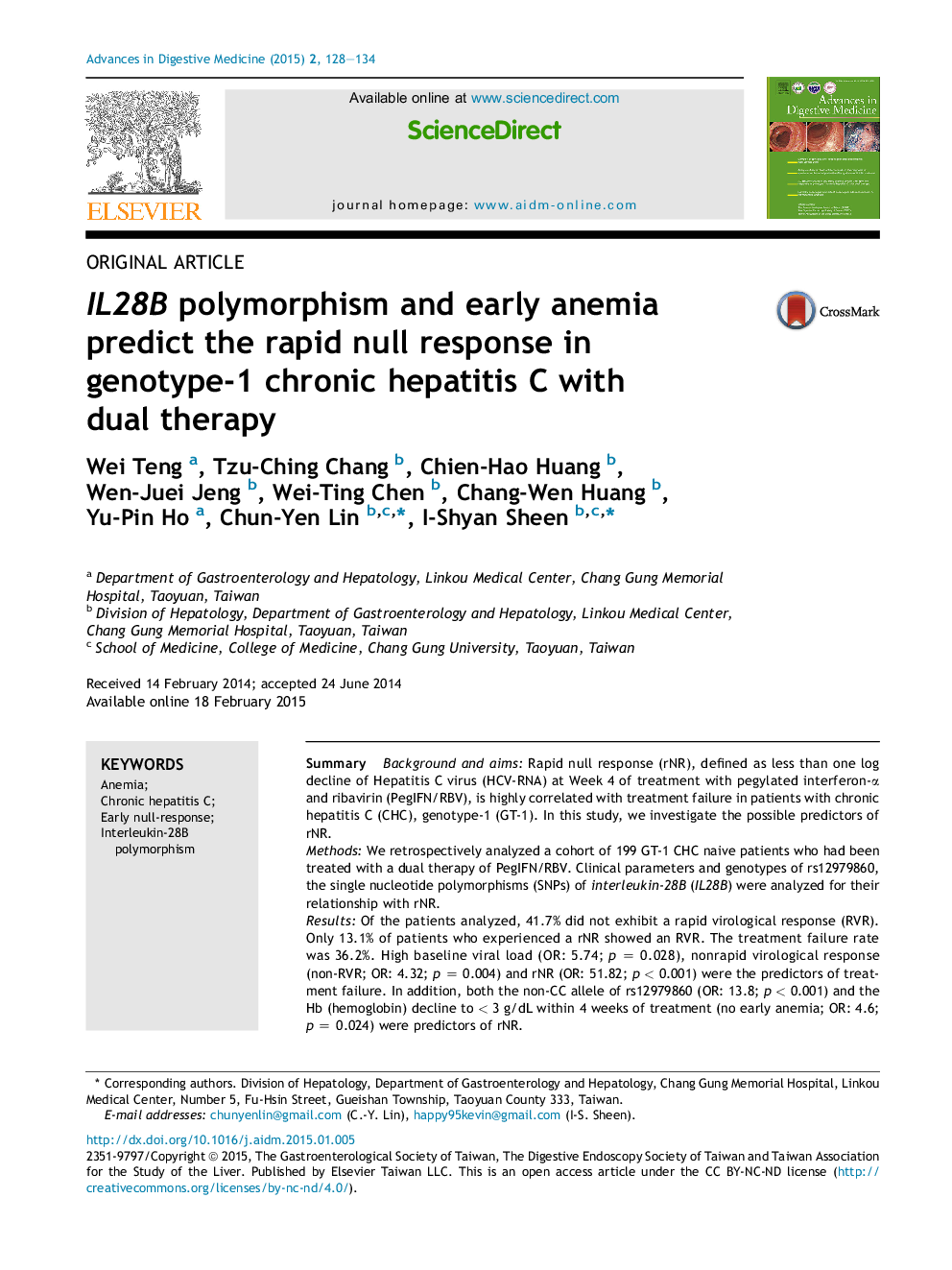| Article ID | Journal | Published Year | Pages | File Type |
|---|---|---|---|---|
| 3278523 | Advances in Digestive Medicine | 2015 | 7 Pages |
SummaryBackground and aimsRapid null response (rNR), defined as less than one log decline of Hepatitis C virus (HCV-RNA) at Week 4 of treatment with pegylated interferon-α and ribavirin (PegIFN/RBV), is highly correlated with treatment failure in patients with chronic hepatitis C (CHC), genotype-1 (GT-1). In this study, we investigate the possible predictors of rNR.MethodsWe retrospectively analyzed a cohort of 199 GT-1 CHC naive patients who had been treated with a dual therapy of PegIFN/RBV. Clinical parameters and genotypes of rs12979860, the single nucleotide polymorphisms (SNPs) of interleukin-28B (IL28B) were analyzed for their relationship with rNR.ResultsOf the patients analyzed, 41.7% did not exhibit a rapid virological response (RVR). Only 13.1% of patients who experienced a rNR showed an RVR. The treatment failure rate was 36.2%. High baseline viral load (OR: 5.74; p = 0.028), nonrapid virological response (non-RVR; OR: 4.32; p = 0.004) and rNR (OR: 51.82; p < 0.001) were the predictors of treatment failure. In addition, both the non-CC allele of rs12979860 (OR: 13.8; p < 0.001) and the Hb (hemoglobin) decline to < 3 g/dL within 4 weeks of treatment (no early anemia; OR: 4.6; p = 0.024) were predictors of rNR.ConclusionsrNR predicted treatment failure early in GT-1 CHC patients treated with PegIFN/RBV. Non-CC genotype of rs12979860 and no early anemia were significant predictors of rNR.
